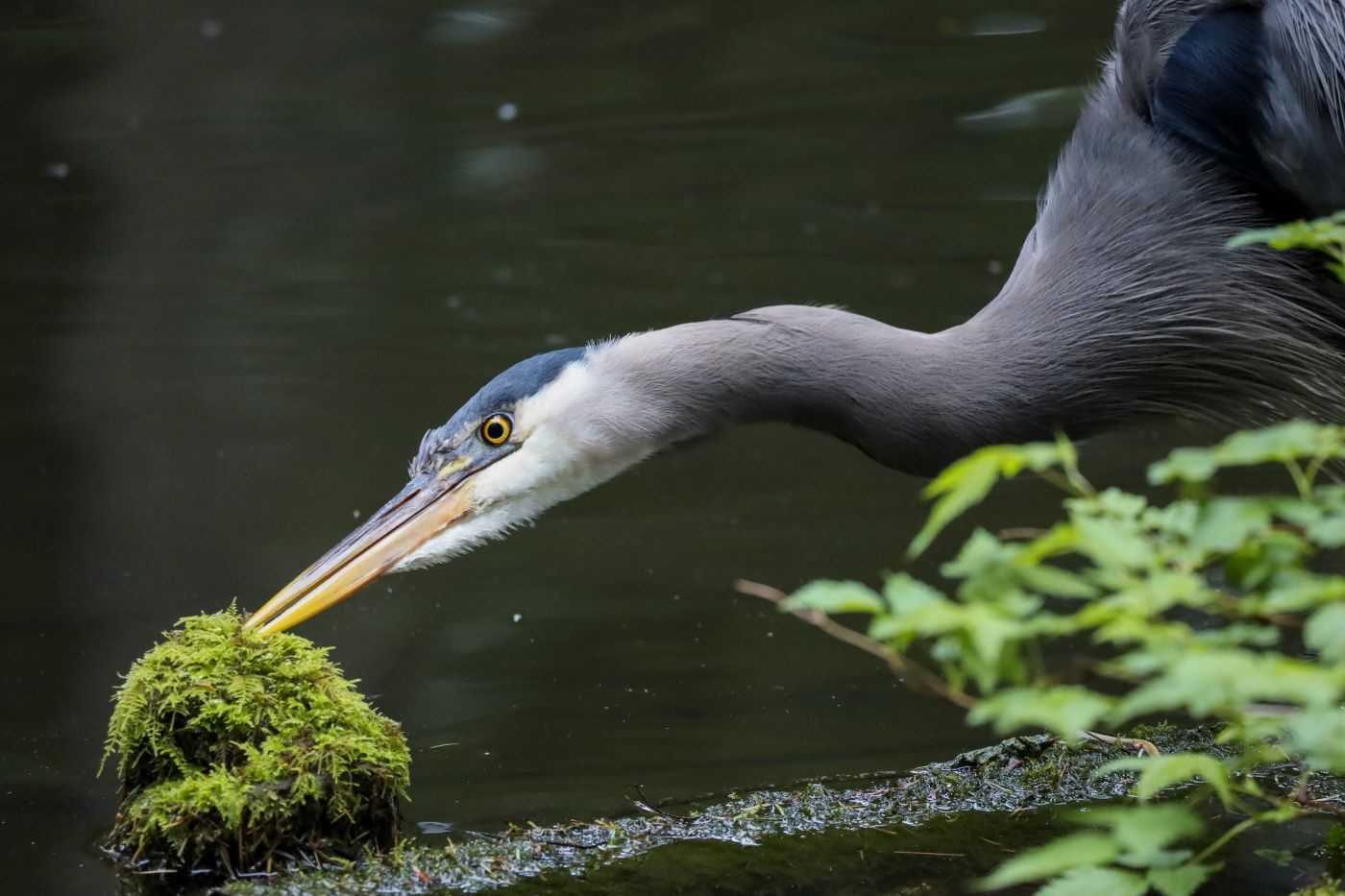
From October 21-November 1, 2024, world leaders are going to be gathering in Cali, Colombia for the 16th Conference of Parties of the Convention on Biological Diversity – also known as COP16, or NatureCOP.
We are excited to have two West Coast staff lawyers joining them. Keep reading to learn why and click here to take action for nature!
You may recall that in 2022, Canada hosted COP15 in Montreal, which resulted in nearly 200 countries agreeing to the Kunming-Montreal Global Biodiversity Framework (GBF), a landmark agreement for halting and reversing nature loss. The GBF commits countries to four overarching goals and 23 targets for protecting and restoring biodiversity and ensuring fair access to natural resources.
This COP16 will be about ensuring countries like Canada are serious about meeting those targets. And because strong laws are the backbone of any serious environmental plan, our lawyers will be focused on securing commitments to strong legal protection for Canada’s lands, ocean and wildlife.
The UN Biodiversity Conference (COP16) – What’s at stake?
Because this is the first COP since the GBF was finalized, its focus is on what countries are doing to ensure that they fulfil their obligations under it.
The GBF uses three main implementation mechanisms: target-setting, planning and reporting. In recognition of the global nature of the biodiversity crisis and the need for cooperative action to halt and reverse nature loss, the 23 GBF targets are considered global in nature. They are not binding on individual countries – rather, countries are expected to set their own national targets that are designed to reflect that country’s contribution towards meeting the global targets.
The GBF also requires countries to submit what are called national biodiversity strategies and action plans (NBSAPs) that set out a roadmap for meeting national targets. Those NBSAPs should clearly describe what policies, measures and programmes will be used to meet the targets.
Finally, countries are required to periodically report on progress towards meeting the targets so that other countries – and the public – know whether they are on track. They are expected to use clear indicators in order to keep reporting honest.
NBSAPS and reports have been standard since the Convention on Biological Diversity was ratified in 1995. And since that time, Canada’s planning and reporting has fallen short. Lack of national targets or any precise metrics of success have allowed us to claim more credit on the international stage than we deserve. Since Canada’s submitted its first NBSAP under the Convention, ecosystems and species have gotten worse off, not better.
Unfortunately, that trend appears to be continuing. While Canada’s 2030 Nature Strategy is a welcome step, it is unclear whether it will be enough to halt, let alone reverse, nature loss. Also, we still don’t have a plan for implementing it. What is more, Canada is among those countries that has failed to establish national targets, meaning that we can’t even get an “E” for “effort” under the GBF.
What are we asking for at COP16?
So how can this COP16 be the moment that Canada starts halting nature loss and starts restoring the things we depend on?
First, we need a strong law that holds the federal government to account for setting – and meeting – ambitious nature targets. As we have written previously, a nature accountability law would:
- Require the federal government to set nature targets for 2030 and beyond, including protecting 30% of Canada’s land and ocean by 2030.
- Set minimum standards for NBSAPs so they are clear roadmaps for meeting our targets rather than just glossy brochures.
- Require the federal government to collaborate with Indigenous nations and respect Indigenous rights and authority when making and implementing the national biodiversity strategies and action plans, as well as supporting Indigenous-led initiatives.
- Require honest reporting on progress towards meeting our targets, including any course-correction measures needed if we are not on track to meeting our targets.
- Establish an independent expert advisory body comprised of Indigenous and non-Indigenous experts and knowledge-holders to advise on targets, plans and reports.
In June, Parliament tabled Bill C-73, a proposed Nature Accountability Act. If passed, Bill C-73 would establish a nature advisory committee and require Canada to produce NBSAPs as well as progress reports.
However, the Act falls far short of what is needed to deliver true accountability, and is being held up in Parliament by political shenanigans. Help us call on the Prime Minister and key ministers to strengthen and pass Bill C-73 without any further delay.
Specifically, we want amendments to the bill to:
- Require the federal government to set national targets, including protection targets for land and ocean;
- Strengthen the requirements for NBSAPs and reports;
- Strengthen the composition and mandate of the nature advisory committee so that our targets, plans and reports are based on rigorous science and Indigenous knowledge;
- Require periodic audits by the Commissioner of the Environment and Sustainable Development to provide independent oversight; and
- Establish a “biodiversity shield” that would require federal authorities to ensure that their decisions help rather than harm nature.
How you can help
Our lawyers will be on the ground in Colombia calling for strong laws to protect nature. Add your voice to theirs and help us secure a strong nature accountability act for Canada.
Please take a moment to sign this petition to strengthen and pass Bill C-73. Together with our allies at Greenpeace Canada, we’re aiming for 100,000 signatures!
From Goals to Ground-Level Change: Legal Pathways for Implementing the Global Biodiversity Framework
On October 28, 2024, we co-hosted a special event in Colombia with Ecojustice where we delved into the legal pathways necessary to turn global goals into tangible, on-the-ground changes. The event featured speakers from Canada and around the world discussing legal tools for ensuring that countries meet their Global Biodiversity Framework obligations. Learn more.
Top photo: Andrew Darlington via Unsplash